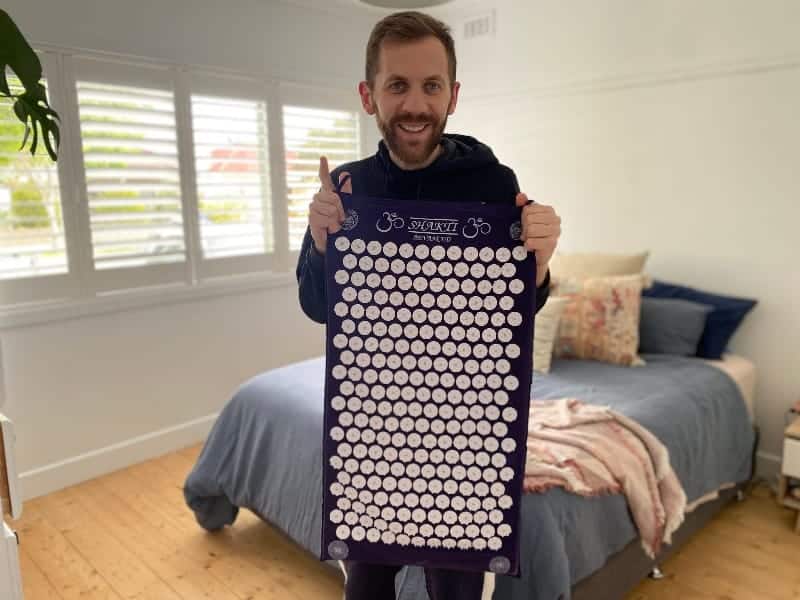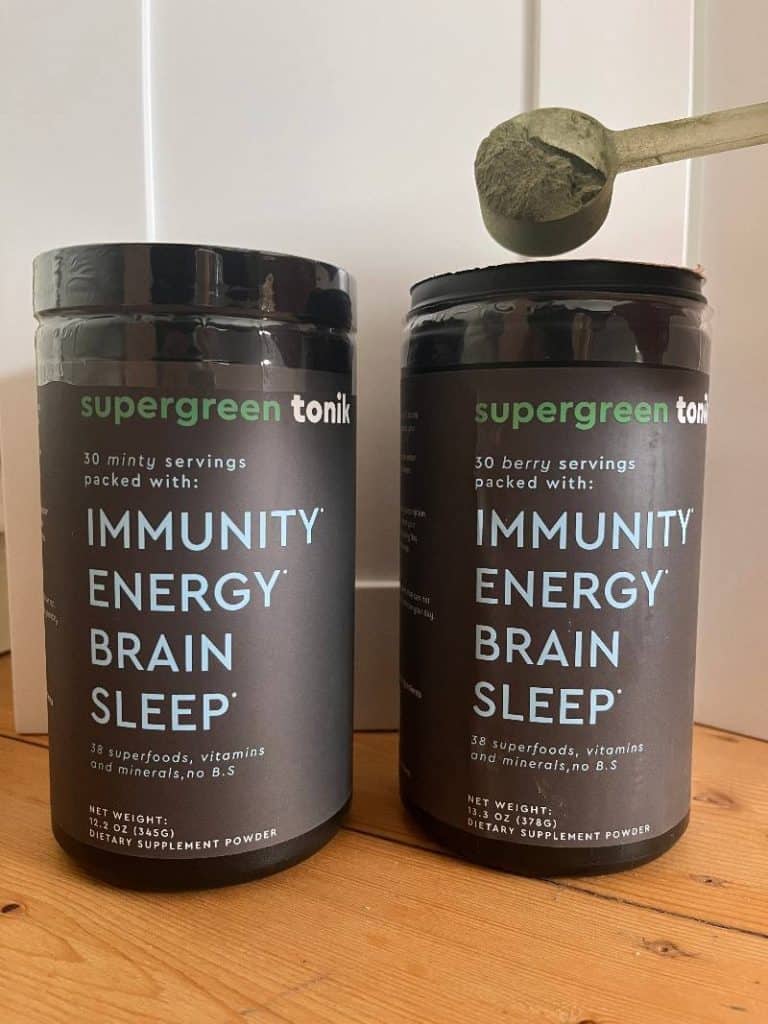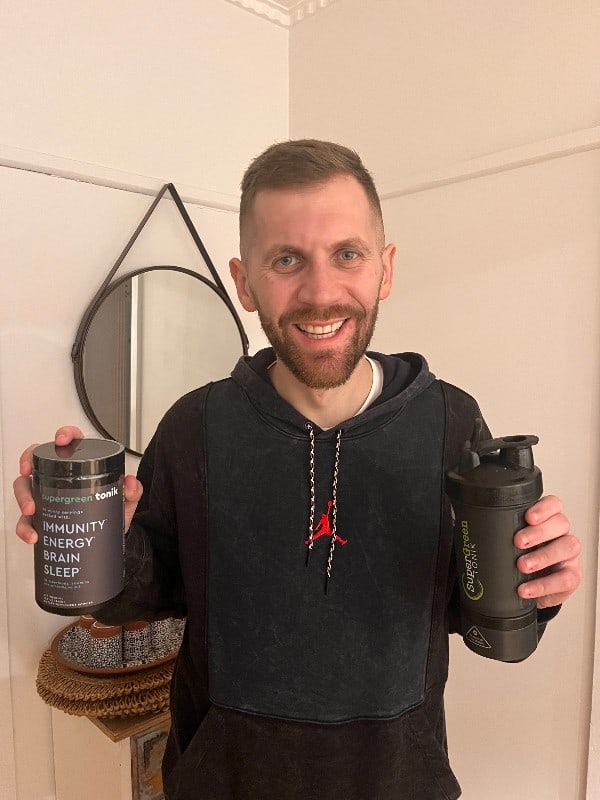Disclosure: This page may contain affiliate links, meaning we receive a commission if you decide to make a purchase through our links, but this is at no additional cost to you. Please read our disclosure and privacy statement for more info.
Are you working the night shift and feeling overly exhausted? Sensing you are constantly forgetting things, living in a state of confusion? You may be experiencing brain fog. While not a medical condition, brain fog runs rampant through the world of night shift. If you work nights, the likelihood that you have experienced brain fog at some point in your life is fairly high. However, thinking through the brain fog is achievable. So, do you find yourself experiencing brain fog on night shift, wondering how to think clearly?
Brain fog is beatable and does not have to control your life. Start thinking clearly by taking actionable steps such as prioritizing sleep, practicing stress management strategies, exercise, maintaining a healthy diet, and adding supplements to your daily regimen.

If you are concerned with brain fog bombarding your thoughts, read below to find out our suggested best practices for combating it.
What is Brain Fog?
“Wait, what was I saying?”
“Her name is right at the tip of my tongue!”
“I know I was there, but the details are a little hazy.”
If you have found yourself saying any of the above statements, you could potentially be experiencing what is known as brain fog. As previously stated, brain fog is not a medical condition within itself. It is instead a characteristic of or an experience of other underlying issues. It is not a medical diagnosis.
Brain fog is more of a mental feeling. If you are feeling sluggish, mentally slow-moving, or zoned out – it could be because of brain fog.
Brain fog is a hazy feeling that you cannot seem to shake. The mental sharpness that you are used to experiencing vanishes with the trace of brain fog.
When there is a presence of brain fog, everyday tasks seem like way too much work.
There are several things that could factor into experiencing brain fog: including working the night shift. So, what are some things to look for if you are struggling to burst past the fog, into clear space above the clouds?
Below is a list of “symptoms” to be hyper-aware of.

Brain Fog Symptoms
I know I have said it already, however, it bears repeating – brain fog is not a mental condition in itself.
Brain fog is a symptom of other medical conditions.
Alternatively, it’s a symptom of a lack of something that your body and brain need. Instead of symptoms of brain fog – think of characteristics of brain fog.
Some characteristics include but are not limited to:
- State of Confusion
- Being Forgetful
- Fatigue
- Inability to focus on small simple tasks
- Feeling “cloudy” – or fuzzy
Keep in mind that your experience with brain fog may not be the same as the next person’s experience with brain fog.
They may have similarities but depending on what is the underlying condition is – you could have a completely dissimilar experience. So, do not try to base the severity of your characteristics on a discussion you had with another person.

What Causes Brain Fog?
Working the night shift, we find ourselves having a higher risk of certain health issues over those who are working during the day. They consist of, but are not limited to;
1. Lack of Sleep
Those who work nights know that sleep is hard to come by consistently.
Working night shifts can often seem difficult due to the unnatural sleep habits it causes. We work all night, and then expect our bodies to sleep well throughout the day.
The lack of sleep causes memory loss and makes your brain seem like it is “lagging.” The lagging that you are experiencing is a part of the brain fog phenomenon.
2. Vitamin Deficiencies
The lack of vitamins in your body can increase your chances of experiencing brain fog. Not having the appropriate vitamins can lead to your brain to feel sluggish and tired, leading to potential memory loss and confusion. Therefore, ensure you are getting your daily doses of vitamins.
Consult your doctor if you are unsure of what vitamins you should be taking.
Related post: Which Vitamins Should I Take on Night Shift?
3. Stress
Stress, also known as the silent killer. Stress on your body means stress on your brain.
We all know that when you experience a great deal of stress, your brain seems like it inverts on itself, and you can be left feeling helpless and confused.
4. Pre-Existing Medical Conditions
Preexisting medical conditions such as depression, anxiety, and thyroid diseases can lead to experiencing brain fog.
In addition to these medical conditions, brain fog can be a symptom. Seek your doctor’s assistance when it comes to treating these other medical conditions.
5. Medications
Getting sick calls for medications. We all know the infamous list of side effects that come with taking certain medications.
A lot of medications come with the side effect of brain fog. Depending on the type of medication, you can become sluggish and “out of it” for a lack of better words.
Take the necessary precautions and know in yourself that if you begin experiencing brain fog – do not be alarmed. If it persists throughout or post your medication cycle, consult with your doctor as that medication may not be right for you.
Related: 11 Tips For Night Shift Workers Considering Melatonin

Brain Fog and Anxiety
Yes, I know – anxiety could have been listed under “what causes brain fog.” However, I felt it needed its own little section and here is why.
For plenty of people out there, working a night shift and having anxiety go hand in hand. It is very difficult to find someone on nights who has not suffered from anxiety at some point during their career. Anxiety is one of the main driving forces behind brain fog.
Anxiety has a way of creeping up on you out of nowhere. It is very intrusive in that way. Typically, we start the night off good – right? We have a plan laid out in our heads about how our night is going to go. Then, here comes anxiety.
Anxiety takes precedence in our minds. Making us frequently lose our train of thought. This can cause a huge cluster within our brain – allowing brain fog to set up shop.
Some anxiety-related ailments that can cause brain fog include ADHD, Depression, and Generalized Anxiety.
If you find yourself experiencing any of the former, make sure that you are seeking medical attention. When coupled with each other, brain fog and anxiety can cause more harm than necessary.
Brain Fog – Common in Night Shift Workers
Let us be real here, working on the night shift comes with some added challenges – a large component of which are health-related.
One of the most recurring health issues that we deal with is brain fog.
When you begin working the night shift, you are forced to change the natural rhythm of your body. Which when you’ve lived a certain way for your whole life, it throws your entire body off. A true reason why we believe brain fog seems to run rampant in the night shift work scene.
Because your body is put through the wringer when working nights, you are more than likely constantly in some form of stress.
Not all stress is bad stress, but the impact that it can have on your brain can be significant. Especially in the wee hours of the morning.
You are at the final stretch of your shift, and you can feel the exhaustion creeping up on you. You start jumbling your words and forgetting what you just said. This could be brain fog in the works. However, working a night shift in a healthy manner is achievable. Let us discuss some home remedies you can use to counteract the possibility of brain fog.
[VIDEO] – Are Night Shifts Bad For You? Stop Them Ruining Your Health
Remedies
Night shifters – the lovers of home remedies.
When you are working on the night shift, it can be difficult to get to the doctor. This means, no matter what ailment we come across, we seek solutions and remedies on the home front (probably part of the reason you are reading this article!).
Even though brain fog is not considered an actual health condition, we’ve listed some home remedies that might go a long way to helping you move it along.
Stress Management
I know what you are thinking – you have heard it before, manage your stress. However, it could seriously impact your experience with brain fog.
Start actively seeking ways that work for you; practicing being mindful, yoga, long walks, a hobby that makes you happy, socializing with friends.
There are so many ways that one can manage stress, you just need to find what’s right for you and stick with it. Remember most new habits take about 6 weeks.
As a de-stress strategy, Dan lays on his Shakti mat every night for about 20 minutes. He places the mat on our bed, sets his alarm and either scroll on his phone, talks rubbish with me, or reads his book whilst laying on it. He falls asleep almost instantly after removing the mat. It’s amazing.
This is the one he has (it’s intense) and this is the softer one I have if you’re new to this idea.

Exercise
Looking for some brain restoration? Exercising, even in the simplest form may help. Exercising has been linked to endorphins released in your brain – which could potentially clear up some brain fog.
We’ve all had that feeling of mental clarity or sharpness after working up a sweat – it might be just what you need.
Want to get fit? This post will help: What’s the Best Exercise Workout Routine for Shift Workers?
Maintaining a Healthy Diet
Dieting – the enemy of night shift. Most people on night shift find themselves eating out more than they would if they were on regular shift. Because of the times in which night shift falls, eating out generally means eating fast food. Which, we all know, isn’t healthy.
Putting all of these harmful additives in our bodies can counteract any efforts we put toward a healthy body, towards a healthy brain. Try adding whole foods into your diet, foods that are processed the least. Also, instead of eating out – have you thought about meal prepping for your week?
Here are a few other posts you might find helpful;
- Should I Eat on Night Shift? Why Intermittent Fasting Works
- Is The Warrior Diet the Ultimate Tool for Night Shift?
- Energy-Boosting Foods for Night Shift: What To Eat and When
Add Supplements
One way of combating brain fog is adding supplements into your daily medicines, should you be lacking in certain areas.
Potential supplements that are common for night workers are B Vitamins, caffeine supplements, or Omega 3’s.
There are others that you can look into taking too, however with all of these, be sure to consult your doctor before adding anything into your daily regimen.
I add extra goodness into my diet by drinking SuperGreen TONIK. It’s the tastiest most effective green juice I’ve tried. It took me about a week of drinking this repetitively to notice a significant shift in my mental clarity and now I can’t imagine not starting my day with it. You can read my review here and see if it’s something worthy of a try.
Get Some Sleep
I do not have to tell you night shifters that sleep is something that is hard to come by.
Ensure that you are getting an adequate 7-9 hours each day. Even if this is broken up into different parts throughout the day. The lack of sleep can cause a mental “lag.” Not skipping on your required hours, along with bonus points for those who can get a constant sleep schedule, will provide your brain with the rest it needs.
Here are the sleep aids/ideas which have made a huge difference in our lives and hopefully will in yours too;
- Block out the light in your bedroom and aim for a cave – cool, dark and quite. These black out blinds are great and so is this eye mask
- These blue light blocking glasses are our favourite and we wear them 90 minutes before bed every day/night
- This is our diffuser. It’s simple and doesn’t come with the bells and whistles, but it works great
- Here is an excellent weighted blanket to give you comfort when jumping into bed alone
- Here are some weird techniques to try, if you feel like you’ve tried everything else
- Write a note on your front door telling the neighours and mail person NOT to knock or ring the bell
- Turn your phone to “do not disturb” or similar setting
- Actaully prioritise sleep and stop wasting time before bed. Through this video, I tell you why this is important
[VIDEO] – If you’re having trouble sleeping, here’s why and how to fix it.
In case you missed it, here is where you can get yourself some blue light blocking glasses.
Where to Seek Help?
While it is unlikely that you will deal with brain fog forever – it can linger around for a long period of time. If your brain fog extends past the normal “what was I saying” phenomenon, you might need to seek assistance from your primary care physician.
Because brain fog can be caused by numerous things, your doctor can help pinpoint where the problem lies.
Your doctor may even refer you to a neurologist if the case is severe enough. However, it is exceedingly rare that brain fog gets to the point of seeking medical attention. Usually, it is caused by a medical condition your doctor is already aware of or is yet to locate.
If you do however feel you need to seek medical advice – we encourage you to do that. That is why doctors exist and it is always better to be safe than sorry.
Keep Reading:
- How Can I Boost My Immune System When Working Night Shift?
- The Advanced Guide to Self-Care and Night Shift
- How Do 24-Hour Shifts Work? When to Sleep, Eat and Recover
Brain fog should not be the end of your night shift career. Let this serve as a guide to getting you into a healthier and happier state of mind.
Do not let something that can be fully dealt with take precedent in your life.
It is important that you understand that brain fog is extremely common in those who work night shift. However, this is because night shift without proper care and preparation leads to nasty habits – habits that have most likely been there for a long time and are hard to break.
So, if you aren’t enjoying feeling hazy, get yourself in order and put strategies in place to defeat the fog and get back to feeling “crystal clear” once again.

Disclosure: This page may contain affiliate links, meaning we receive a commission if you decide to make a purchase through our links, but this is at no additional cost to you. Please read our disclosure and privacy statement for more info.
Disclosure: This page may contain affiliate links, meaning we receive a commission if you decide to make a purchase through our links, but this is at no additional cost to you. Please read our disclosure and privacy statement for more info.
Recent Posts
An examination of the night shift professions, that while sometimes underappreciated, are necessary for civilization, in its current form, to exist. A city can be thought of as a machine. Each...
Culminated from an exhaustive yet well-funded journey into the night, this article will prepare you for life outside of work while being a denizen of the dark. During days off, night shift...



